Children and young people stories
In this section...
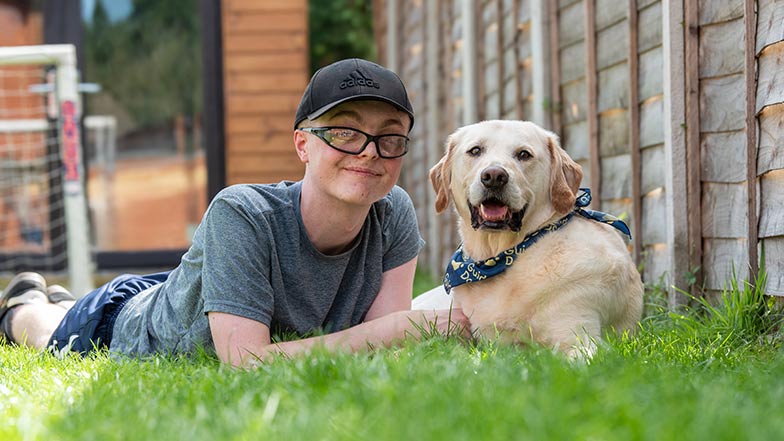
When Declan was six-years-old, he lost his vision through a rare reaction to medication. Now, aged 16, Dylan continues to grow in confidence, with his buddy dog at his side.
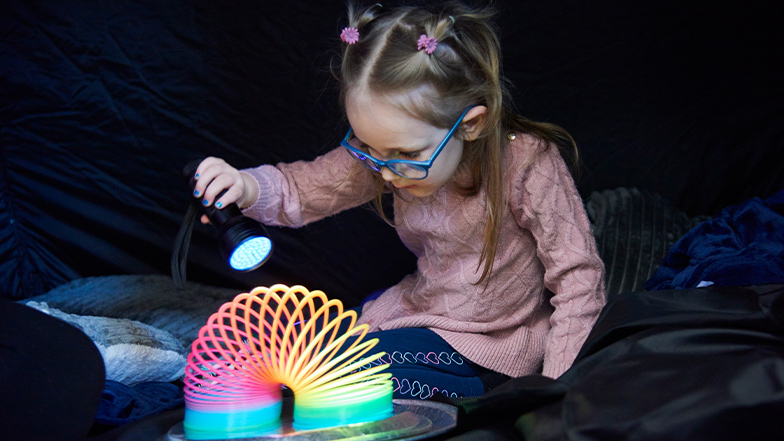
Ruby loves getting messy at My Time to Play sessions organised by Guide Dogs. Her mum explains how Ruby’s confidence has improved since attending the sessions.
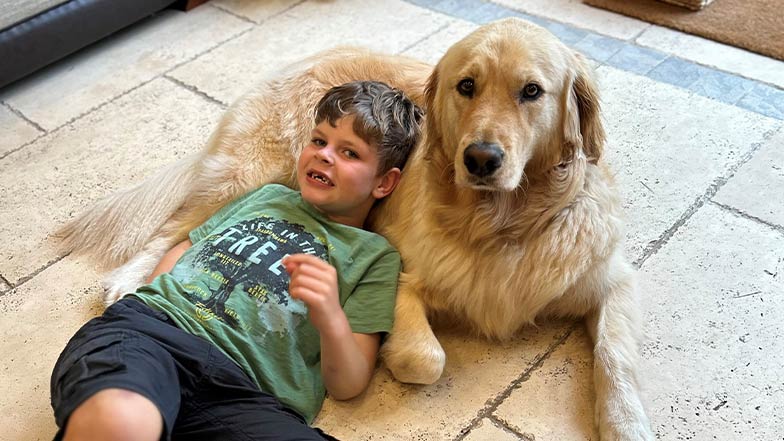
Buddy dog Chance helped Alex build his confidence and overcome his fear of dogs. Read about these best friends who love being outside jumping in muddy puddles.
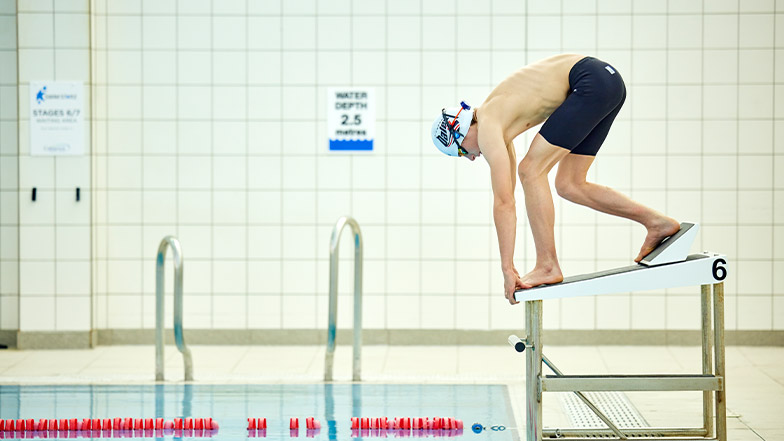
Sport mad Archie dreams of getting to the Paralympic Games. Described by his parents as ‘fiercely competitive’, Archie says he loves all sport and enjoys testing himself to be his best. Read his story.
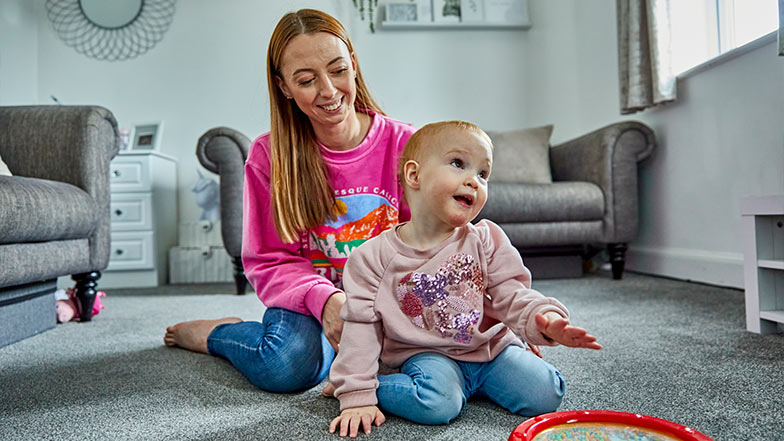
When Eliza was just nine-months-old she was registered blind. Eliza’s parents came away feeling so overwhelmed and didn’t know what to do next, where to go or who to speak to.
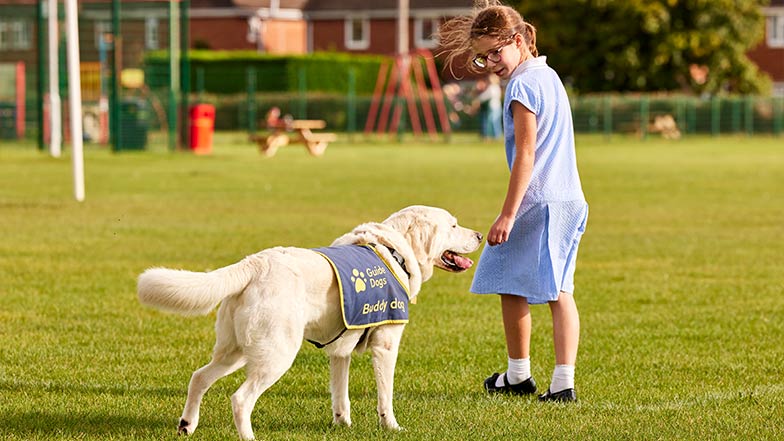
Erin first started working with her Guide Dogs Habilitation Specialist at two years old. Learn about her long cane training and the arrival of buddy dog Quince.
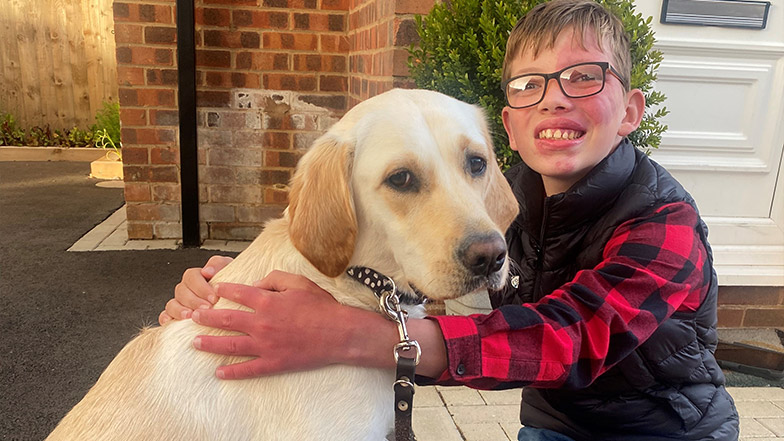
Isaac was born with a birthmark over his eye, which affects his sight. Since buddy dog Riley moved into their home, mum Louise says the whole family hasn’t stopped smiling.
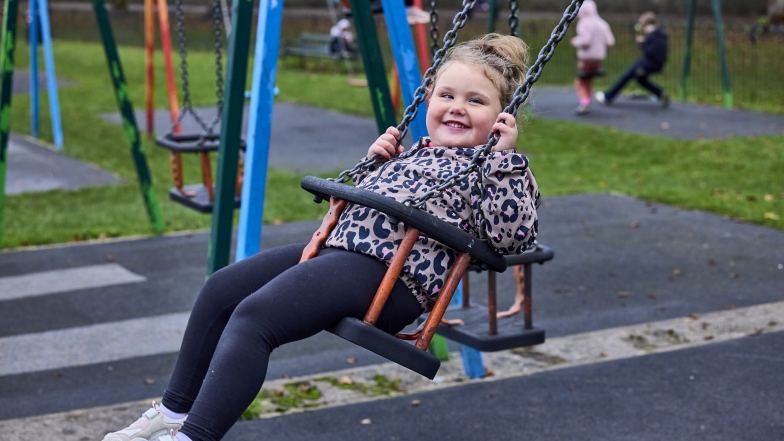
Mabel’s parents reached out to Guide Dogs after Mabel was diagnosed with a vision impairment at just a few months old. Find out more about their story.
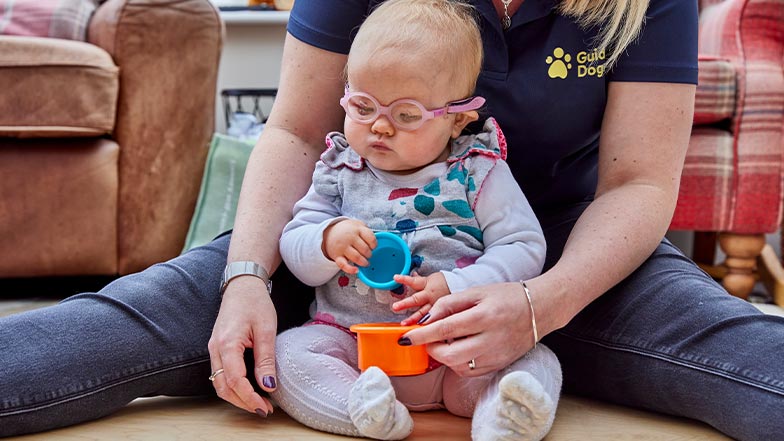
Margot is one of the youngest children supported by Guide Dogs. Her parents reached out to us for help when she was just nine weeks old.
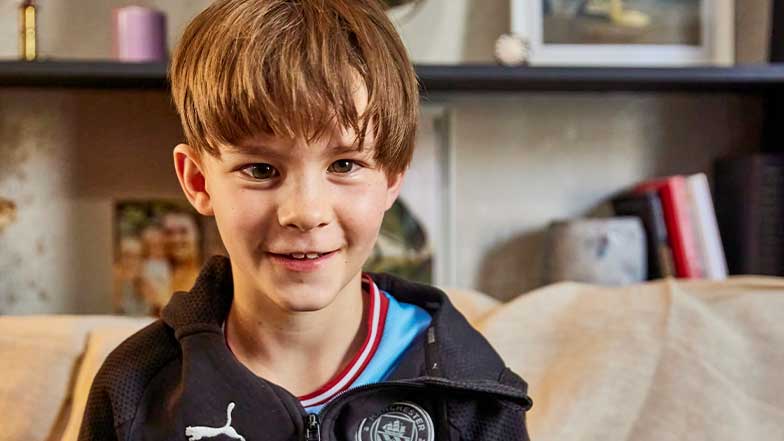
Like many ten-year-olds, Ralph is at an age where he wants to start doing more for himself. Find out how we supported him at school and at home.
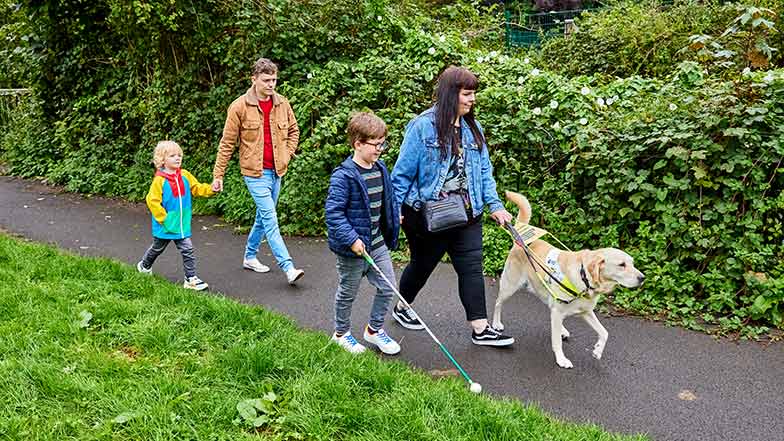
Seven-year-old Rex was diagnosed with nystagmus and optic atrophy. Discover how Guide Dogs has supported him with our Tech for All scheme and CustomEyes Books.
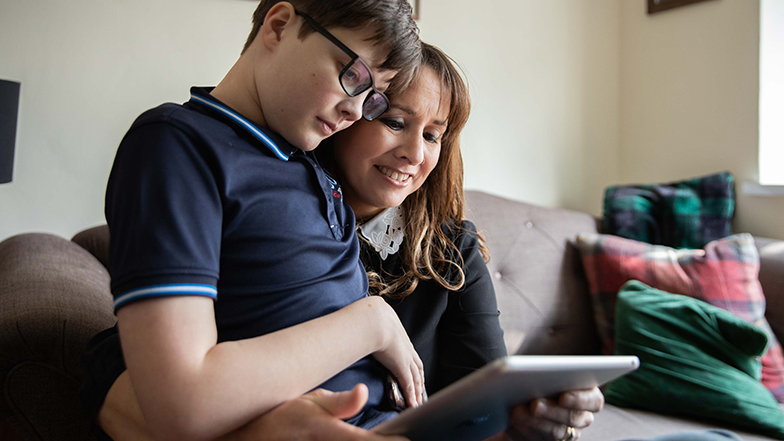
Will received an iPad from Guide Dogs to help with independence and homework since transitioning to senior school. His mum explains the difference it's made.

Within 24 hours of birth, Josie suffered a stroke causing her to have issues with her vision. After several difficult years with no support, Josie's parents got the idea to call Guide Dogs and haven't looked back since.
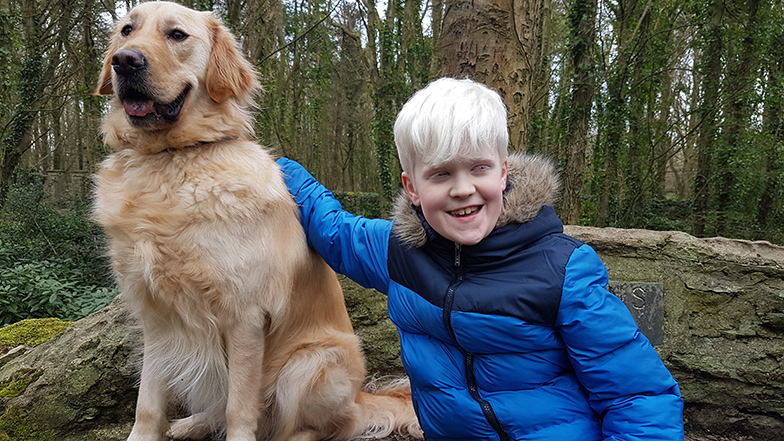
On days when it's too bright for Ellis' eyes, he misses out on playing with his friends. Buddy dog, Ralph, has helped Ellis feel a lot better and gave him someone very special to talk to.
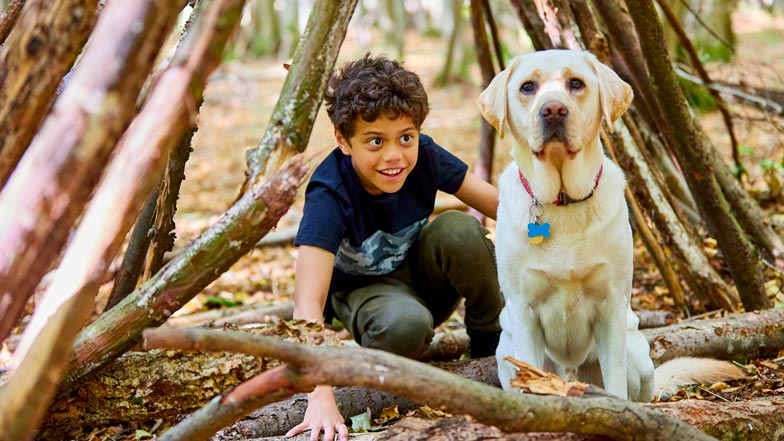
When buddy dog Sam joined Jago's family in June, he instantly became Jago's best friend, giving security and companionship that has completely transformed their lives.
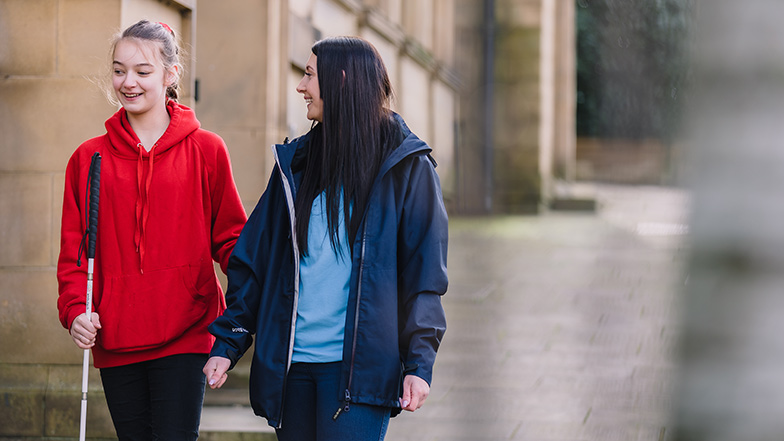
Like any other teenager, Mia just wanted to be independent and go out with her friends. With help from her Guide Dogs habilitation specialist, she gained the confidence and skills to do just that.
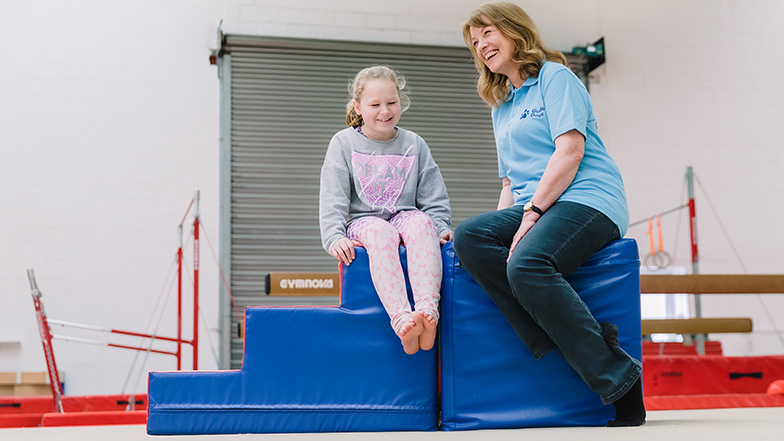
Although Oashia has no sight at all, her Guide Dogs habilitation coach, Helen, is helping her get the most out of life - including doing gymnastics and horse riding!
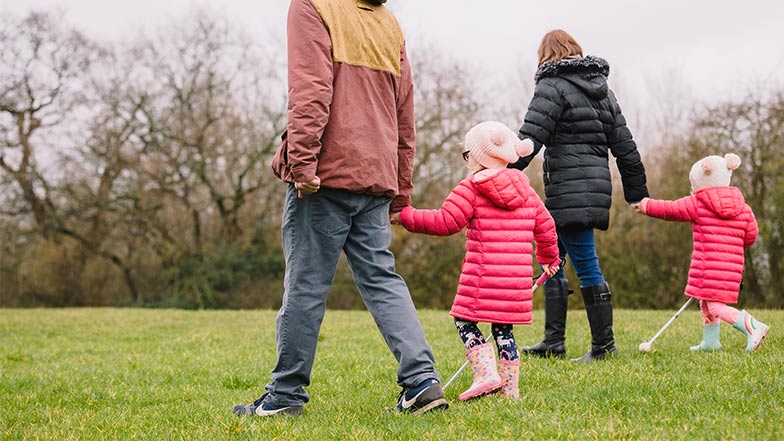
Alma has nystagmus and Leber congenital amaurosis; her younger sister Suzie has the same condition. So Mum, Sophie, found attending a family weekend invaluable.
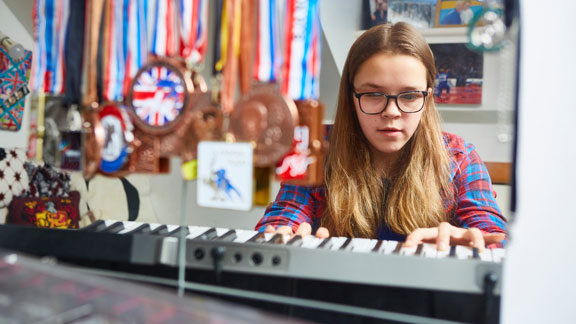
Caitlin was born with congenital glaucoma but that hasn't stopped her performing her songs for hundreds of people and training with the British judo VI team.